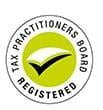Large superannuation balances will have tax concession removed
Effectively, the amounts held in superannuation above $3 million will have that portion's earnings taxed at up to 30%, instead of the current 15%. This new tax rate will apply from 1 July 2025.
How will this work?
From 1 July 2025, if your TSB is over $3 million the ATO will issue an assessment for the additional tax after year end. The tax will be calculated on the difference between your TSB for each income year, adjusted for withdrawals and contributions.
It is the proportion of earnings above $3 million that will be subject to the additional 15% tax. As the tax is calculated on your TSB, this will include unrealised movements on your investments.
From 1 July 2026, the ATO will issue you a notice of assessment for the additional tax once they have calculated your TSB. This will be after your superannuation funds have made their annual tax lodgments. From the date of issue, you will have 84 days to make a payment. The notice will be issued to you personally, making you liable as an individual. You will have the option to pay the additional tax personally or alternatively obtain a release from one of your superannuation accounts to effectively make the payment out of super.
Pensions and the transfer balance cap
Currently, amounts held in superannuation above your transfer balance cap are kept in accumulation phase and taxed at 15%.
This will continue to apply after 1 July 2025, except if your total account is over $3 million. If your account is over $3 million, then that portion will be taxed at up to 30% rather than 15%.
For example, assume you have a TSB of $5 million on 30 June 2025, which grows to $5.5 million on 30 June 2026. As part of your pension, you withdraw $100,000 and a further $100,000 as a lump sum from your accumulation account.
Your end of year TSB is adjusted according to the new law, being the calculation of $5.5 million plus the $200,000 withdrawn; $5.7 million.
Your taxable superannuation earnings for the year is $700,000, being your adjusted TSB of $5.7 million less your opening TSB of $5 million.
The proportion of your earnings that is subject to to the additional tax is 47.37%, being ($5.7 million - $3 million) / $5.7 million.
The additional tax liability under the proposed new law is $49,738.50, being 15% x $700,000 x 47.37%.
The Commissioner of Taxation will then issue you an assessment to pay the additional $49,738.50 and you will have the choice to either make this payment from your superannuation account or personally.
What can I do?
As this announcement states that any new law will not take effect until 1 July 2025, you have 18 months to determine the appropriate action to take. Each action will be different and must be based on your personal and financial situation, but available actions may include the following:
- Do nothing and leave the large balance in superannuation with a tax rate of up to 30% on earnings.
- Pay a lump sum (at varying tax rates) to yourself for private investment (individually or in a company).
- Realise assets prior to the commencement of the new law, taking advantage of lower tax rates for a portion of the gain.
At this stage, the legislation has not passed through the parliament and is currently being debated. As a result, it is subject to change. However, you may still like to review your current situation to make a plan if this legislation is passed as originally written. If you would like to discuss this further, please do not hesitate to contact our office and set up an appointment.


































